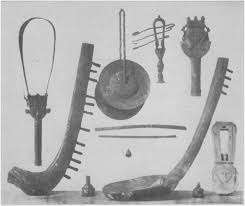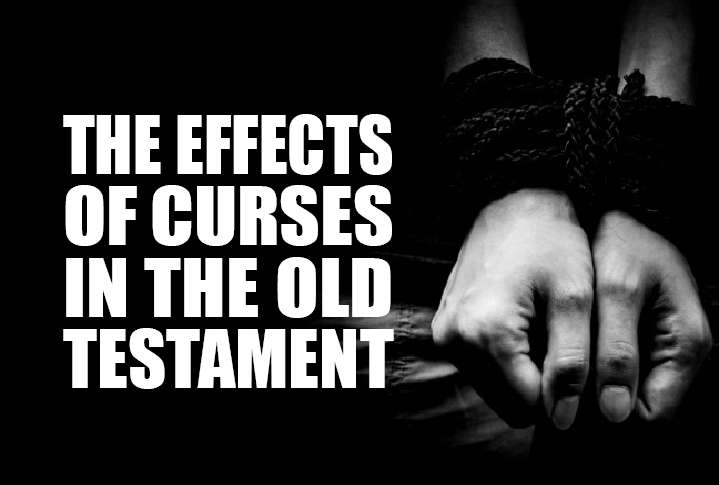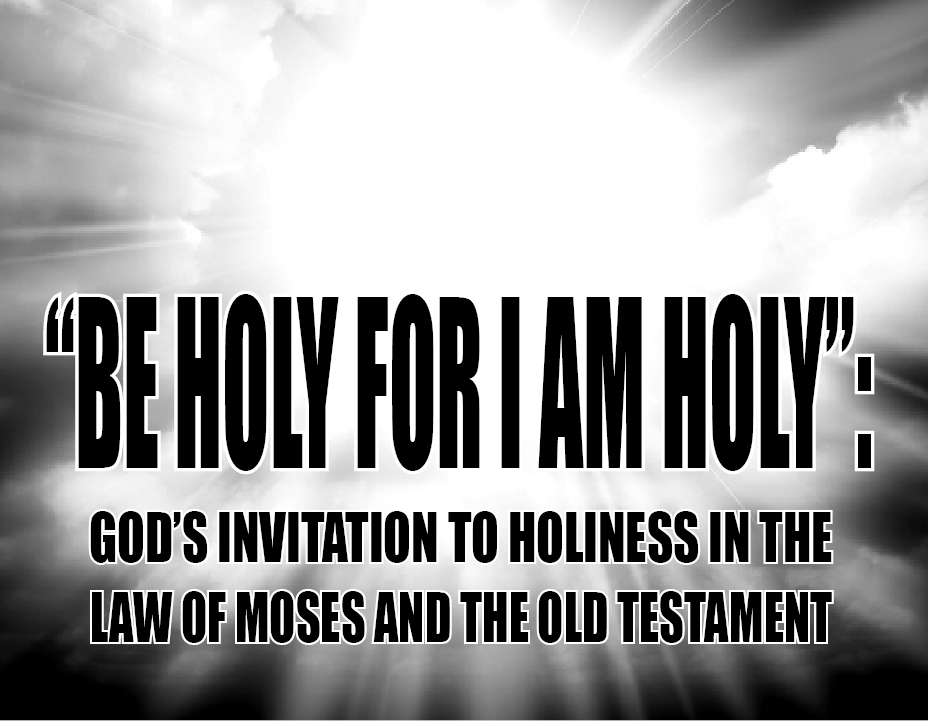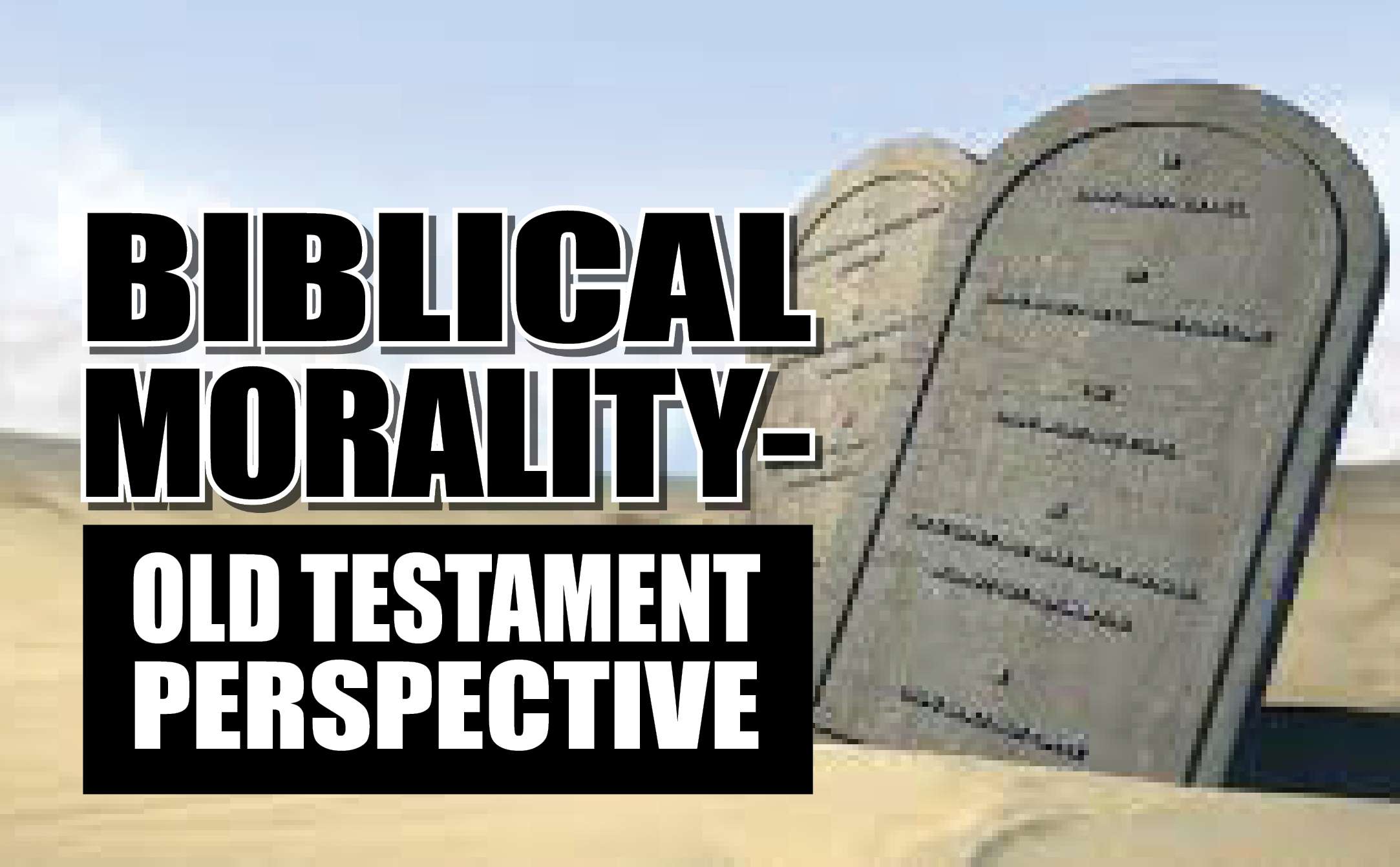

Jehovah-Rapha: God’s Therapeutic Relation with His Creation
Pr. Jison Saju Joseph
In the process of creation, God paused after each step, looked at what he had made, and found that it was good. God's desire for human beings is peace, wholeness, health, well-being. That was the way it was meant to be at the beginning, and that is the promise of how it will be at the end.
God did not create the world with the intention that there would be sickness and suffering. The present interlude in which there is sickness is not a permanent one. The Bible looks back to the beginning (before the fall) as a time free from troubles of toil and pain. And when looking ahead to deliverance, salvation, redemption, the Bible speaks of God as the one who will bring healing (see especially Exod 15:26; Ps 103:3, Ps 147:3). Thus the healing activity of God is to be seen in the context of God's deeds of blessing and these are grounded in creation. Blessing is a continuous action, it does not consist of isolated outstanding events or moments, it operates throughout human life from conception - the basic meaning of blessing is in fertility - through birth, growth and maturity. Since humans became creatures with limitations because of sin, illness is part of their existence, an existence into which the power of death extends. Healing is part of the activity of the Creator, it is part of God's act of blessing since it is normally a process. The process that leads to healing can be compared with the process of growth. It is a process of recovery which can never be replaced by medical skill but only promoted, encouraged and supported. In all three sections of the Hebrew Bible, the Pentateuch, the Prophets, and the Writings, the image of Yahweh as healer is present as a central aspect of God’s relationship with the covenant people.
The Concept of Yahweh as Healer in the Hebrew Bible
The original meaning of Rapha (in the northwest semitic root) is “restore, make whole, heal.” This word is a word in the Hebrew Bible at every instance with reference to restoring a wrong, sick, broken or deficient condition to its original and proper state. Long before the history of Israel there were physicians in the developed city cultures of Egypt and Babylon. In Israel we hear nothing about a medical profession. There were probably individual doctors - although in early times there wasn't even such a term - these were people especially gifted and capable in treating wounds, putting bones in splints, etc. But they did not do this as a profession. Among them there were some famous names to whom people came from far away. They were people of God who had special powers of healing from God. A healing like that of the Syrian by Elisha was certainly something special. Following God’s deliverance of Israel from slavery in Egypt by means of the plagues and the crossing of the Red Sea, Yahweh promises that if Israel obeys the commandments of God, the nation will escape all the diseases which beset the Egyptians, because - "I am Yahweh, your healer" (Exod 15:26). Long life, health and fertility (of human, livestock and land) are included as blessings for covenant obedience (Exod 15:26, 23:25-26, Deut 7:18, 28:4) while infertility and incurable disease (Deut 28:18, 21-35, 59-61) come by as a result of disobedience.
In Isaiah there are the repeated appeals to Israel to turn back to God and be healed (Isa 6:10; 19:22; 30:26), as well as the report of the ailing king Hezekiah’s appeal to God to give him health and life (Isa 38:16). The dual roles of Yahweh as the one who both smites and heals are described with respect to the Egyptians (Isa 19:22) and Israel (Isa 57:18–19). Malachi announces the coming of an agent of God, - the Sun of Righteousness - whose chief resource is - healing in its wings (Mal 4:2). Yahweh heals those broken in heart as well as broken in body (Ps 30:3, 147:3) At times healing is associated with forgiveness (Ps 103:3), with deliverance from imminent destruction (Ps 107:19–20), and with renewal of wounded human spirits (Ps 147:30). Healing can almost become identical with salvation. To be healed from an illness can be an experience of being saved, as in Psalm 107, where healing is only one way among others of being saved. One therefore needs to begin by asking how healing is related to God's action.
Jesus, the healing agent of Yahweh in the New Testament
In the gospel tradition three verbs are used to describe the healings performed by Jesus: (1) hiaomai, (cure, deliver from illness); (2) therapeuo, (wait upon, care for, heal); (3) sothesomai, (make whole, restore). Throughout the Synoptic Gospels, there are summary statements about the healing activity of Jesus: examples may be found in Mark 1:32–34; 1:19; 6:56; Matt 4:23; 8:16; 14:15; 15:30; 21:14; Luke 6:5, 17; 7:20. In the healing stories, the response of faith is essential in order for the healing to occur, whether that faith is resident in the victim or in some person or persons who are hoping for a cure of a friend or relative. It is the faith of the friends of the paralytic who have lowered him through the roof that leads Jesus to pronounce forgiveness of the man‘s sins and to enable him to walk (Mark 2:4–12). It is Jairus’ confidence in the ability of Jesus to heal his daughter that brings him to ask Jesus to do so (Mark 5:23), just as it is the faith of the woman with the blood flow who reaches out in faith to touch Jesus and is thus healed (Mark 5:27–34). At times the healing activity of Jesus is to be followed up by observance of ritual cleansing, as in the Markan and Lukan stories of the cure of lepers (Mark 1:40–45; Luke 5:12–16; Matt 8:1–4; cf. Luke 17:15). In his healing ministry, Jesus also calmed the storm and the sea (Mark 4: 35-41), extending his healing activity to all of God’s creation.
Jesus’ role as a healer is a very significant one as He is not just a healer of the physical ailments. He is Yahweh Himself in human form who came to the earth to restore and heal God’s broken relationship with humanity. We see that a share in the healing benefits of Jesus is extended to those outside the boundaries of the covenant people. This factor is explicit in the healing of the daughter of the Syro-Phoenician woman (Mark 7:24–30; Matt 15:21–28). In response to the question from John the Baptist as to who Jesus is, he depicts his role as enabling the blind to see, the lame to walk, lepers to be cleansed, the deaf to hear, and the dead to be raised. All these descriptions of the healing of humanity derive from the words of the prophet Isaiah (29:18–19; 35:5–6; 61:1), who announces what God will do in behalf of his faithful people in preparation for the new age. The claim that Jesus is indeed God’s agent to accomplish these divine purposes by God’s power is directly announced in Luke’s account of the sermon of Jesus at Nazareth, where, having referred to this healing-and-renewing-activity promise by God (Isa 61:1–2), he adds, -Today this scripture has been fulfilled in your hearing (4:18–21). Matthew has his own version of this claim on behalf of Jesus as healer (15:30–31), where he describes those afflicted with these same ailments, notes that Jesus healed them, and concludes that the crowd which saw these wonders - glorified the God of Israel.
Yahweh’s Therapeutic Activity and the Restoration of His Creation
In 2 Chronicles 7:13-14, Yahweh forewarns His people: “When I shut up the heavens so that there is no rain, or command locusts to devour the land or send a plague among my people, if my people, who are called by my name, will humble themselves and pray and seek my face and turn from their wicked ways, then I will hear from heaven and will forgive their sin and will heal their land.” Here forgiveness is connected with healing. Interestingly the whole land is healed when humans repented. A proper consciousness of their sins ought to bring a people to their knees in humble submission, and lead them to acknowledge their own sins that led to the destruction of the land and the creation of God. Whenever the people of God cried to Yahweh in their troubles, He heard their prayer. God heard the cry of the Hebrew children in Egypt and came down to deliver them, appointing Moses to be the liberator (Exod 3:6-7). Though Nathan had told David that his baby would die as a result of David's sin against Uriah the Hittite, David still felt free to beseech the Lord on behalf of the child (2 Sam 12:16). Jeremiah cried out to God on behalf of his people and himself: "Heal me, O Lord, and I shall be healed: save me, and I shall be saved; for thou art my praise" (Jer 17:14). Likewise, Jesus urges people to come to him with their troubles. He says we should be persistent in asking what we want from God, not faltering and doubtful, but confident that we will find what we seek. Even human fathers will give their sons what they need and will not deceive them. "If you, then, who are evil, know how to give good gifts to your children, how much more will your Father who is in heaven give good things to those who ask him!" (Matt 7:11). So we are invited to pray for healing from our own sickness and the illness of others. Prayer is a great resource at times of illness. We are invited to take our trouble to God.
They were people of God in the Old Testament who had special powers of healing from God. They acted as God’s agents of healing. Healing was ultimately enacted by Yahweh. In the Old Testament it was through the prophets. The prophets were just Yahweh’s instruments of healing. In the New Testament, we see Jesus as Yahweh’s agent of healing. In the early Christian community, the apostles were given the gift of healing and they healed many by the power of the Holy Spirit. However, the gift of healing is not only limited to the prophets and the apostles, but it is bestowed upon believers in the New Testament Church. Spiritual gifts is a major topic in the Pauline writings. Paul says that different persons can be given different gifts by God for the good of the community. The primary implication of the gift of healing in the church is that certain believers in the church have been given the special capacity to mediate physical cures by the special powers from God. But there is also a secondary implication of a therapeutic relationship that the believers can establish with people inside and outside the church and with the whole creation of God.
The Creational Healing Power of Yahweh which Extends beyond Physical Existence
God's promise to bring health to us may not come true in terms of physical health within this life. But we know that this life is not all that there is. All human beings must die. Our bodies wear out. No one has the promise of perpetual good health in this life. In Matthew 10:28, Jesus makes a very significant caution: “Do not be afraid of those who kill the body but cannot kill the soul. Rather, be afraid of the one who can destroy both soul and body in hell.” Here Jesus’ saying implies that receiving a healing in the physical body is not the most important matter since life extends beyond death. Yahweh’s power is not limited in helping us just to live a life on this earth without sickness. Even if we are lucky enough to live that long, the aging process begins to make its mark and, though one may not actually be sick, the old body just isn't pleasant and energetic as it used to be. In some cases, we may even be so bold as to say that death itself is healing—in fact, it may be the only healing possible. So there must be more than this life if God's promises about healing are to be kept. Yahweh’s power to heal extends beyond this earthly existence to eternity.
Therefore a negative view of sickness cannot be a right attitude. In fact God can even use our sickness for some good purpose. Even Jesus advocated this view (John 9:1-3). That can be a very helpful idea for a number of reasons. It moves beyond a belief in retribution, a belief that all sicknesses are a result of sin. Though there are a number of incidents in the Bible where sickness came as a result of sin, we should not come to such a conclusion when a person becomes sick in our surroundings. We live in a polluted earth with several disease-causing germs and bacteria. It's becoming clearer and clearer in these beginning years of the twenty first century that environmental concerns are not isolated ones, but that they go hand in hand with issues of health, justice and peace. Sin is not always necessarily the cause of illness. Yet we must acknowledge the presence and involvement of God in the outcome of the sickness. Even if healing does not come, that is not a sign of God's absence. On the contrary, God works even in our misfortunes, our limitations, and our weakness. As Paul said, God's power is made perfect in weakness (2 Cor. 12:9). If God's intention for us is wholeness, shalom and health; we need a life beyond this one in order for this to be accomplished. To be sure, we must not give up too quickly in our hopes for health within this life. Therefore, we should not be so narrowly bound in our expectations that disappointment, frustration, pain, and illness in this life leave us with doubts about the goodness of God or our own worthiness.










